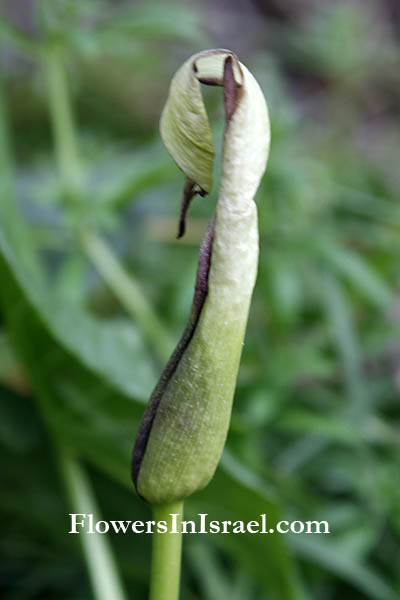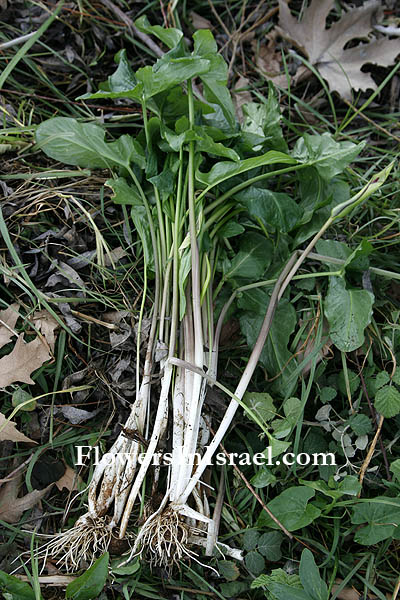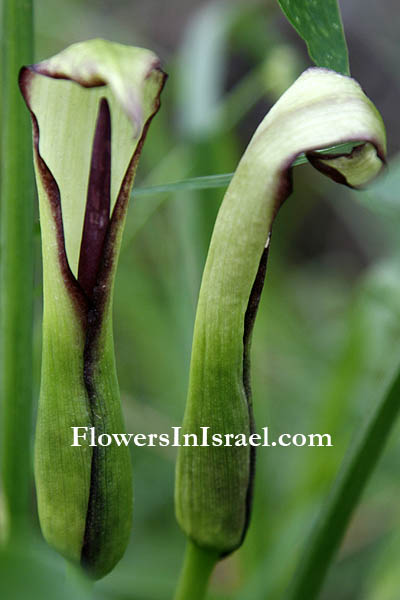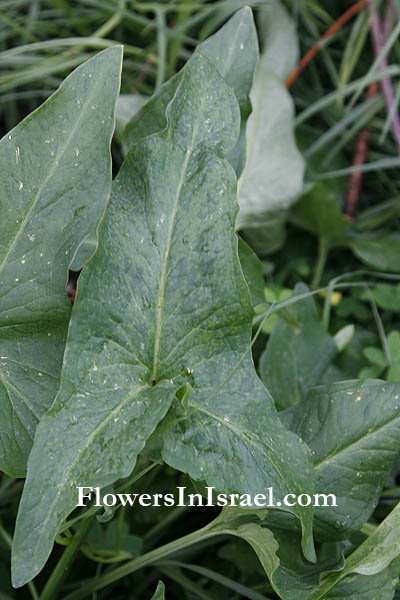Hebrew: לוף ירוק, Arabic: اللوف الشاره للرطوبة
| Scientific name: | Arum hygrophilum Boiss. | |
| Common name: | Streambank Arum | |
| Hebrew name: | לוף ירוק | |
| Arabic name: | اللوف الشاره للرطوبة | |
| Family: | Araceae, לופיים |

|
| Life form: | Geophyte | |
| Stems: | 20-60 cm tall | |
| Leaves: | Rosette, simple, smooth | |
| Flowers: | no sepals or tepals; spathe is long and narrow, soft green with a deep purple edge | |
| Fruits / pods: | Cluster of red-orange berries | |
| Flowering Period: | February, March, April | |
| Habitat: | Mediterranean maquis and forest | |
| Distribution: | Mediterranean Woodlands and Shrublands, Semi-steppe shrublands, Montane vegetation of Mt. Hermon | |
| Chorotype: | Mediterranean | |
| Summer shedding: | Ephemeral |

Derivation of the botanical name: Arum. The name "Aron," with the Greek termination, has been used in the most ancient times, having been applied by Hippocrates (c.460 - c.377 BCE), Theophrastus (370 - about 285 BCE), Dioscorides (ca. 40 - ca.90 CE) and Pliny (23 - 79 CE), but by the latter with the Latin termination (Arum). hygrophilum, hygros, υγροϛ, "wet, moist, liquid", -philum, "-loving"; moisture-loving. The Hebrew word: לןף, luf, from Aramaic: לופא, Lufa, Arabic: לופ, lup.


|